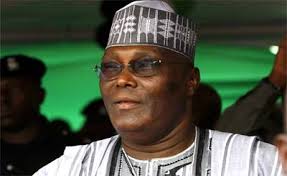IMF Says Oil Theft Dwindles Nigerian Economy
Oil theft has been adversely affecting export receipts and government revenues, leading to excessive depletion of the Nigerian excess crude account, the International Monetary Fund (IMF) said in a statement.
The statement said that despite the economy’s performance and Gross Domestic Product (GDP)’s growth of 6.8 percent in the last quarter of 2013, “Nigeria could be affected by a decline in oil prices, the pace of recovery in global economic and financial conditions, capital outflows, continued losses in oil production, or increased security concerns.”
The statement was issued by the fund’s senior resident representative in Nigeria, Mr Gene Leon, at the end of the IMF mission visit to conduct discussion for the 2013 Article IV consultation in the country November 13 – 26.
“At the same time, the economy can manage such shocks given a relatively flexible exchange rate regime, improved financial crisis management capacity, and a stable banking system.
But fiscal buffers are low and a sustained high rate of growth is needed to reduce unemployment, and poverty,” the IMF said.
“Nigeria’s economy has continued to perform strongly in 2013. Real GDP grew by 6.8 percent in the third quarter of 2013 (compared to third quarter 2012), supported by robust performances in agriculture, services and trade.
“Oil theft/production losses have adversely impacted export receipts and government revenues, leading to a significant drawdown from the Excess Crude Account. Inflation declined to 7.8 percent (end-September 2013) from 12 percent at end 2012, in part owing to lower food prices and monetary policy implemented by the Central Bank of Nigeria (CBN).
“The exchange rate has been stable, and the banking sector is well capitalized with low levels of non-performing loans.
“Although the outlook is positive, risks need to be managed. Growth is projected to increase to about 7 percent in 2014, while inflation should remain subdued in the single digits,” the statement said.
During the visit, the IMF mission met with Finance Minister Ngozi Okonjo-Iweala, Central Bank of Nigeria Governor Sanusi Lamido Sanusi, senior government officials, members of the legislature and representatives of the private sector.
IMF also said that Nigeria’s “fiscal consolidation is progressing well and the momentum needs to be preserved through the ongoing election cycle.
“Key public financial management reforms are underway, including the implementation of a Treasury Single Account (TSA) and integrated information management systems, but lower-than-budgeted oil revenues are impacting budgetary plans at federal, state, and local levels and highlighting the need for rebuilding fiscal buffers to manage oil revenue volatility,” the fund said.
It added that “moving toward a sustainable non-oil primary deficit path will require resolve in continuing fiscal consolidation, including through resisting procyclical election spending, mobilizing non-oil revenue, improving efficiency in the public sector and strengthening transparency in oil sector governance.”
The statement said that the current monetary stance is appropriate and should remain geared towards sustaining low inflation and a stable financial system, adding that “managing liquidity in the banking system remains a priority, and will be aided by the implementation of the TSA and prudent fiscal management. Likewise, the CBN has maintained stability of the naira; containing inflation and facilitating business confidence.
“To promote inclusive growth and mitigate the impact of vulnerabilities, ongoing structural and institutional reforms should be pursued resolutely,” it noted, adding that the 20/20 vision and the transformation agenda provide a framework for ongoing reforms, including the privatisation of the generation and distribution of energy, initiatives to increase food security and viability of agriculture, and programmes funded through the Universal Basic Education Commission to improve human capital development.





